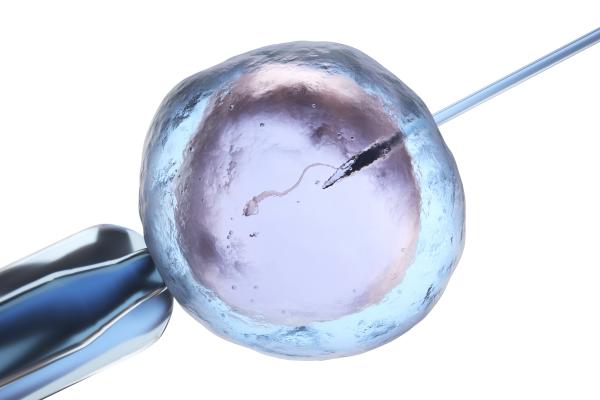
Deciding if you want to try to have a child may be one of the biggest decisions you will ever make. Deciding when to start trying is almost as important.
Of course, there’s no ‘perfect’ time to look at conceiving and there’s certainly no one-size-fits-all approach. Everyone, and every couple, is different.
When thinking about trying to have a child, you'll likely take into consideration things like if and how you can afford it, if there are other goals you want to work towards first and whether you're emotionally ready to take on the responsibility. One of the most significant things to consider is at what age to take the first step towards parenthood.
And it seems Australian men are now taking longer than ever to take that giant leap into fatherhood. For births registered in 2021, the median age of fathers was 33.7 years (mothers were 31.7) — a far cry from when records were first kept in 1974, when the median age of dads was 28.6.
So dads are now getting older — is this an issue?
What is the best age to become a father?
Most of us have heard about so-called ‘miracle babies’ born to fathers in their 60s, 70s or even 80s, but sooner is usually better than later when it comes to fatherhood.
While some men can become fathers later in life, sperm quality declines with age — and partners of men aged 45 years or older take longer to fall pregnant and have a higher risk of miscarriage.
And, although still rare, autism and other developmental conditions are slightly more common in children with older fathers. The risk of your child having a genetic or chromosomal problem is also increased.
In simple terms, earlier is better, says Professor Rob McLachlan, Medical Director of Healthy Male. “Men remain fertile into older age, but there are reductions in semen volume, sperm motility and the ‘DNA intactness’ of your sperm,” he says.
“It is less likely an older man can cause a conception, a higher miscarriage rate is seen in the partners, and some rare genetic diseases are more common in their offspring, indicating a reduction in the 'quality control' of sperm production. These effects develop during your 40s, especially if other chronic diseases arise along the way.
“Clearly, your best years for reproduction are in your 20s and 30s and early 40s.”
With women experiencing a dramatic decline in fertility as they age, McLachlan also said men needed to consider their partner when deciding whether the time was right to start trying for a child.
“Couples plan to have children, not individuals – men need to understand their own situation and that their partners’ ability to conceive will certainly decline as they age. Men need to recognise the inevitability of the female decline in fertility, and the couple make their plan accordingly.”
So, broadly speaking, the longer you wait to take the plunge, the more difficulties you may encounter. In some cases, a man may be diagnosed with male infertility.
What is male infertility, and how common is it?
If a couple has been unable to fall pregnant after one year of frequent unprotected sexual intercourse, they are considered infertile. A diagnosis of 'male infertility' is used when the female partner is known to be fertile, or the male has low enough semen quality to prevent conception.
Infertility is estimated to affect 8-9% of males in Australia and male infertility usually results from problems with production of sperm in the testes (spermatogenesis). This can be due to hormonal problems, poor function of the testicles or blockages in the male urogenital tract.
Sperm production in the testes can be reduced by factors including obesity, undescended testes, testicular injury and genetic conditions like Klinefelter syndrome.
Age can also impact fertility.
How does age affect male fertility?
Unfortunately for men looking to become fathers later on in life, age does have a significant impact on reproduction.
This is due to:
- Older men tending to have older female partners, which is associated with increased time to conception
- The risk of developing medical conditions or exposure to environmental toxins increases with age, and these reduce semen quality and increase rates of DNA damage in sperm
- Declining testosterone may cause a reduction in libido, erectile dysfunction and difficulty achieving ejaculation
- Ageing negatively impacting male sexual function, sperm parameters and fertility, which all appear to contribute to lower probability of conception, increased time to conception and increased miscarriage rates
How can men improve their sperm health?
Sometimes male infertility is not preventable, but there are some things you can do to improve the likelihood of healthy sperm. This includes:
- Quit smoking
In short, heavy smokers make fewer sperm than non-smokers, and smoking damages the DNA in sperm. However, the damage of smoking is reversible and quitting will increase the chance of conceiving and having a healthy bub.
- Try to achieve a healthy weight
On average, overweight or obese men have lower sperm quality than their healthier counterparts. Even losing a few kilograms can improve sperm quality.
- Cut back on drugs and alcohol
Alcohol is OK in small amounts, but heavy and binge drinking can reduce sperm count and quality. Other drugs, such as cannabis, cocaine and heroin, have also been shown to impact libido and testosterone levels. Anabolic steroid misuse and abuse are also be harmful.
- Be aware of sexually transmitted infections (STIs)
Practising safe sex is always important, but untreated STIs can reduce sperm quality and cause blockages in sperm tubes. If you’re concerned you may have an STI, see a doctor and get treatment as soon as possible.









